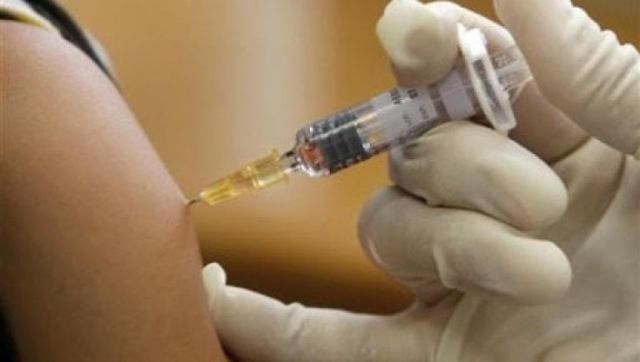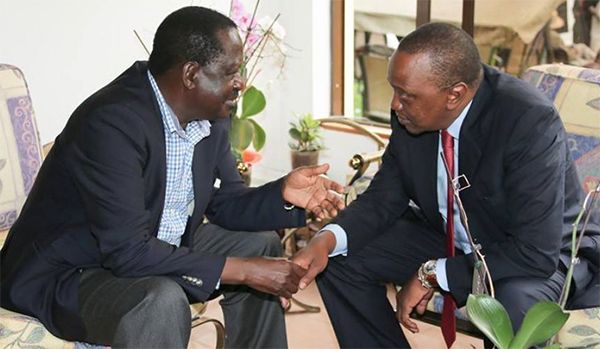
SOCIETY
25-03-2022 by Freddie del Curatolo

During the pandemic period, Kenyans living above the threshold of minimum survival and the so-called "middle class," which includes at least 10 million people, became more aware of health security, of being able to monitor their own status and to do so without excessive expense. Blood tests, medical screenings, pap smears for women and other preventive systems have increased. At the same time, many testing laboratories and small private clinics have sprung up or been implemented in the country.
Among the many practices that Kenyans are discovering, however, there is one that is causing a half ethical and social revolution within families, couples and between relatives, especially in matters of inheritance.
It is the ease with which today, unlike a few years ago, you can access DNA testing of adult men to prove actual paternity or not. Ease that means low costs (6 thousand to 10 thousand shillings) and many more health facilities across the country that can do it.
But also because DNA testing has become increasingly important to solve many other controversies, especially in ordinary crime: finding and convicting perpetrators of rape and murder, for example.
If the moral question has been raised by the Church and several civil rights associations, the practical one is affecting the different levels of Kenyan courts.
Whether or not a man can be forced to undergo a DNA test in Kenya is still a controversial issue.
High Court Judge Mumbi Ngugi, a few days ago, officially kicked off compulsory testing with this ruling: "The petitioner has not shown how the requirement to undergo DNA testing violates his freedom of conscience guaranteed by the Constitution. All he claims is that he is being asked to submit to the test against his will."
There are now hundreds of cases filed in the High Court, to overturn orders already approved by lower courts.
"The big moral question about DNA testing is what happens if the eventual discovery breaks the family bond, if it turns out, for example, that the children a father has raised and loves are not actually biologically his. What can happen? Will some people disown the children? Most people who are going to use this test, or have used it, should keep in mind that in no case has it been the children's fault," explains one of the associations dealing with these cases.
It's as if to say that before authorizing these battles, which often also become legal, it would be necessary to instill in Kenyans, who have always lived (let's say) on trust, the culture of these instruments that are now within everyone's reach, to understand how to manage them later.
Rural village life has always increased the number of cases of "children of the community", but also the polygamy that is characteristic of many tribes from generation to generation has led men to believe in their partners, especially since having many children can always be considered a boast, a sign of wealth and power.
Today, however, it is more difficult to curb the impetus of those who claim recognition within wealthy families or even declare themselves to be the illegitimate children of a deceased person. There are many pending cases involving inheritance.
As well as some mothers, who are accustomed by the male chauvinism still prevailing in Kenya, not to have to rely too much on the help of the alleged father, after the discovery that what they are certain to be the biological parent is a person able to help their child to grow, study, care, ask for DNA evidence.
There are current cases that could set a precedent, after the man failed to prove during the investigation, not to be the natural father, was forced to undergo the test. Will it be a revolution?
Meanwhile, dozens of mixed couples, Kenyan women and foreign men, are also on alert. How many "mzungu" will decide they want to know the truth? How many already know it and will let it happen? If so, what could be the "good for the children"? Questions that certainly should not be answered by a High Court...

The Malindi Court of Appeal was rated as the best in Kenya by the annual Justice Report, drawn up and made public by Justice Chief and President of the Supreme Court of Kenya, David Maraga.
With a "very good" rating,...
VOLI
by redazione

As of today, Saturday January 29, the Dubai-based airline Emirates has decided to resume operations...
NEWS
by redazione

The Kenya Civil Aviation Authority (KCAA) has forwarded updates that address some of the health...
TO ENTER KENYA
by redazione

Also in 2023, all travelers bound for Kenya aged 12 years and older will be required to show proof of COVID-19 vaccination...
CORONAVIRUS
by redazione

Laboratory doctors' strikes, lack of swab kits, but also fewer requests for symptomatics. These...
LATEST NEWS
by redazione

End of restrictions in Kenya and benefits also for foreigners arriving in the country, from...

The Government of Kenya has confirmed the fourth case of coronavirus in the country.
Health ...
LATEST NEWS
by redazione

he Supreme Court of Kenya upheld the appeal of the Opposition represented by Nasa Alliance and its candidate President Raila Odinga, annulling the result of the national elections.
This is an unprecedented fact in a Republic of the African Continent.
INFO
by redazione

As of October 2022, no vaccination is required to travel to Kenya.
As is...
NEWS
by redazione

A lesson in democracy for the whole of Africa and the whole world.
This is how the decision of the Supreme Court of Kenya was defined by the members of the political alliance NASA, which was accepted a few hours...

Two more months of passion for tourists who would like to travel to or return to...
POLITICS
by redazione

It's official, also the Supreme Court of Kenya has rejected the main requests of the so-called popular...